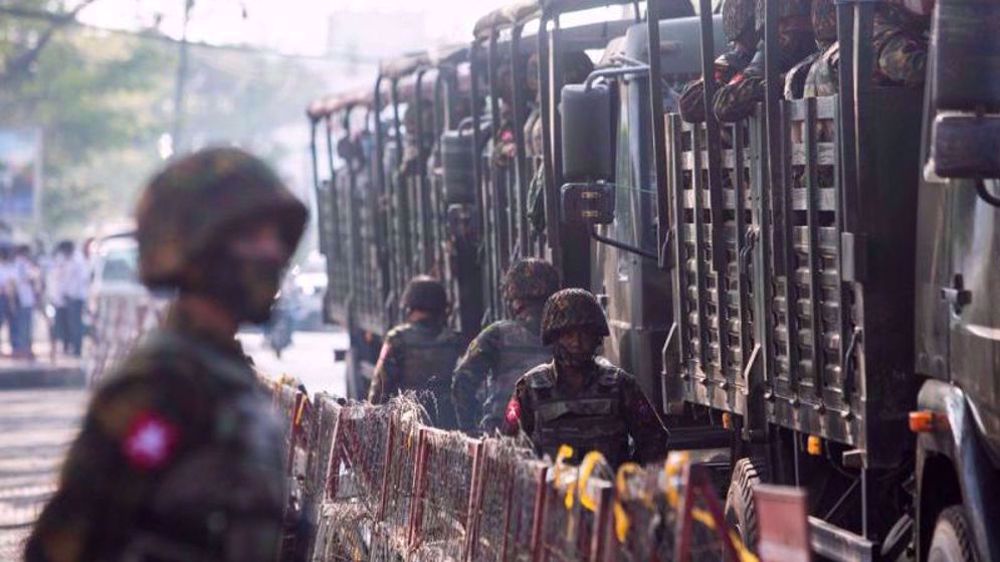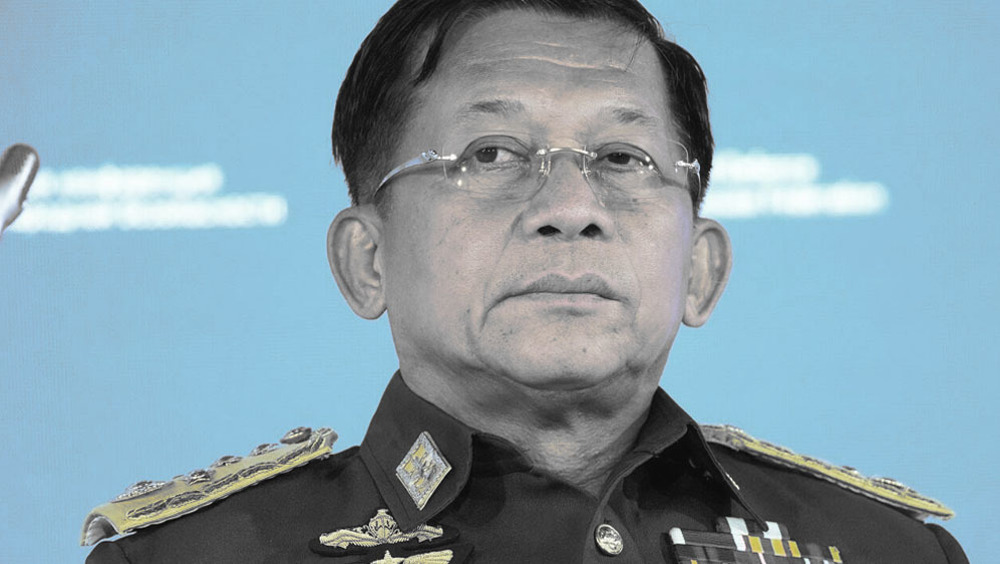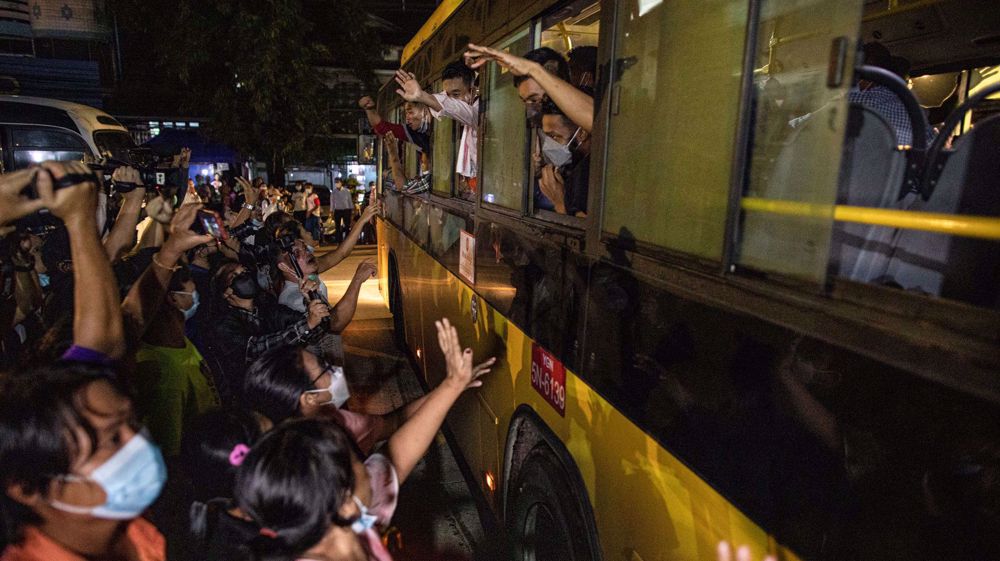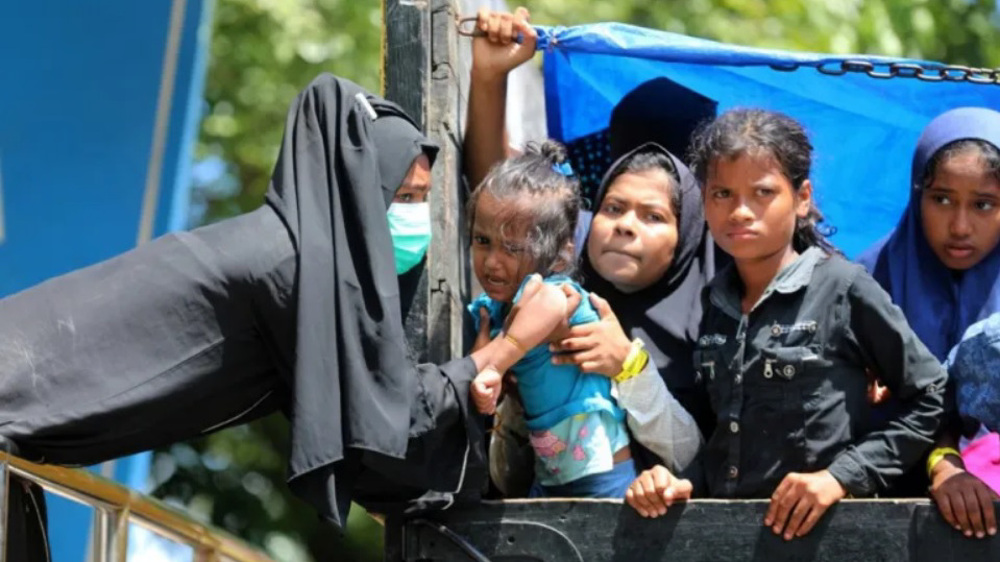Myanmar's military junta torturing detainees in 'systemic' way: Report
A new report has revealed that Myanmar's junta has been torturing detainees in a "methodical" and "systemic" way since it ousted the civilian government and arrested de facto leader Aung Sung Suu Kyi and other political leaders following a coup in February.
The report, by The Associated Press, was released on Thursday and was based on interviews with 28 people imprisoned and released in recent months, as well as photographic evidence, sketches that prisoners drew of prisons and interrogation centers' interiors, and letters to family and friends describing grim conditions and abuse, along with testimony from three military officials who had recently defected.
The AP’s investigation provides the most comprehensive look since the takeover into a highly secretive detention system that has held more than 9,000 people.
The news agency has withheld the prisoners' names, or has used partial names, to protect them from retaliation by the military.
Ko Bo Kyi, a former political prisoner, said the torture often begins on the street or in the detainees' houses, and some die even before reaching an interrogation center.
"The military tortures detainees, first for revenge, then for information," he said, adding, "I think, in many ways, the military has become even more brutal."
A 21-year-old prisoner also said, "They would torture us until they got the answers they wanted."
"They always told us, 'Here at the military interrogation centers, we do not have any laws. We have guns, and we can just kill you and make you disappear if we want to,'" the inmate added.
Kyaw, another prisoner, said he was tortured for days and freed only after signing a statement that he had never been tortured at all.
Lin Htet Aung, a former army captain confirmed to the AP that the military's use of torture against detainees has been rampant since its takeover.
"In our country, after being arrested unfairly, there is torture, violence and sexual assaults happening constantly," he said. "Even a war captive needs to be treated and taken care of by law. All of that is gone with the coup… The world must know."
An aide to the highest-ranking army official in western Myanmar's Chin State also told the AP that soldiers covered up the deaths of two tortured prisoners, forcing a military doctor to falsify their autopsy reports.
Sgt. Hin Lian Piang, who served as a clerk to the North-Western Regional Deputy Commander, said torture is rife throughout the detention system.
"They arrest, beat and torture too many," he said. "They did it to everyone who was arrested."
Myanmar's junta has a long history of torture, which was often recorded in ethnic regions across the country in recent years. The AP's investigation found that multiple military units and police involved in the interrogations are using the same torture techniques that were used in the past.
The methods include deprivation of sleep, food, and water, electric shocks, and relentless beatings with cement-filled bamboo sticks, batons, and fists.
The AP has also identified a dozen interrogation centers across Myanmar, in addition to prisons and police lockups, based on interviews and satellite imagery.
According to prisoners, the military junta has transformed public facilities such as community halls and a royal palace into interrogation centers.
The Assistance Association for Political Prisoners (AAPP), which monitors deaths and arrests, has said the torture carried out inside interrogation centers and prisons is the worst in scale and severity compared to the past.
According to the group, the military junta has killed over 1,200 people, including at least 131 detainees tortured to death since February.
The AP has also sent photographs of several torture victims' injuries to a forensic pathologist with Physicians for Human Rights. The pathologist concluded that wounds on three victims were consistent with beatings by sticks or rods.
Photographs taken inside several detention and interrogation facilities also confirmed prisoners' accounts of overcrowding and filth.
Of the prisoners interviewed by the AP, a dozen were women and children, most of whom were abused.
Military officials have declined to comment on the report.
Myanmar's junta recently freed thousands of political prisoners but swiftly re-arrested dozens of them.
Myanmar has been gripped by turmoil since the military ousted Suu Kyi in the coup and detained her and several other senior figures from the National League for Democracy (NLD) party over election fraud allegations.
Since then, hundreds of thousands of people have held numerous protests against the coup leaders in the Southeast Asian country, demanding the release of Suu Kyi and the other detainees.
The military junta has used lethal force against unarmed civilians, which has drawn widespread backlash, as it continues a brutal crackdown on protesters.
Myanmar's military forces were also involved in a campaign of genocide against Muslim Rohingya that started in 2017.
Thousands protest Trump’s immigration policies on second term anniversary
Ex-NATO chief slams Trump’s Greenland threats, calls on EU to hit back
US ‘must be held accountable’ for supporting terrorism in Iran: Araghchi
VIDEO | Pro-Palestine protest in Madrid challenges UK repression
Canada PM: World order in ‘midst of a rupture’ from US hegemony
VIDEO | Iron walls: One year of Israel’s largest military operation in Palestine in years
Italian farmers protest EU-Mercosur free trade deal
VIDEO | Russian FM holds annual press briefing, highlighting ‘equality-based’ diplomacy












 This makes it easy to access the Press TV website
This makes it easy to access the Press TV website